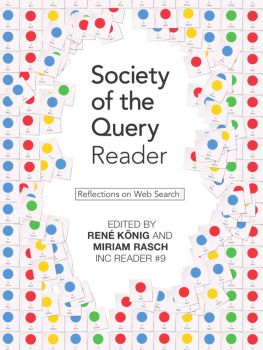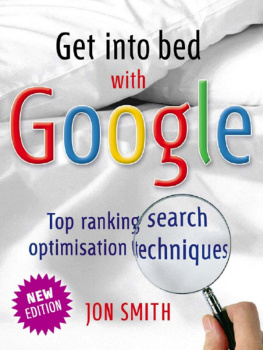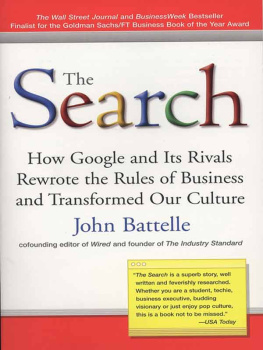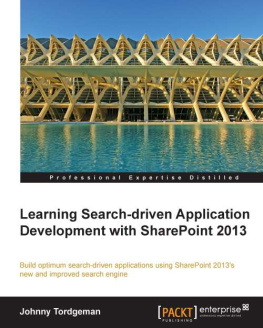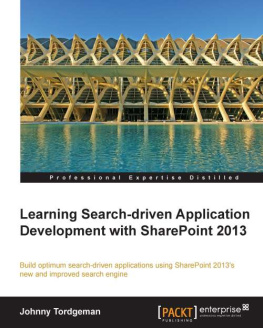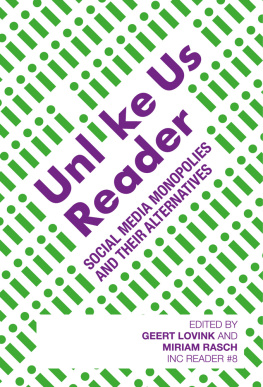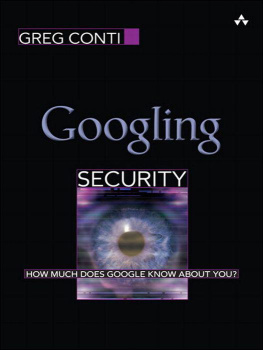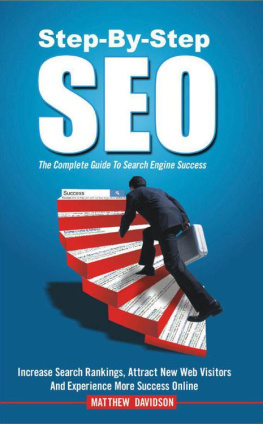Reflect and Act! Introduction to the Society of the Query Reader
Ren Knig and Miriam Rasch
In the span of only a few years, search engines such as Google and Bing have become central infrastructure-like elements of the web. Within milliseconds they offer answers to pretty much all of our questions, providing a remarkably effective access point to the ever-growing ocean of information online. As usual for infrastructures, there is a harsh contrast between the importance they have in our daily lives and the attention we pay them. Just as we expect water running from the tap, electricity coming from the plug, and roads to drive on, we take for granted that there are search engines to give us the information we need.
However, search engines are becoming invisible, thereby increasing their implicit power. To counter this tendency, we need to design visibility campaigns to make their influence apparent. This is the main aim of Society of Query and similar initiatives such as Deep Search. Integrated in smart phone interfaces, browsers, apps, and platforms such as YouTube, we take for granted that there is a search bar in close range. Within a remarkably short time range we have familiarized ourselves with the search logic: type, select, click, and move on. The ever-increasing speed we use to search has created a collective techno-unconsciousness from which we have to wake up. This INC Reader is a modest step in this direction.
The rise of mobile devices and connections has increased the infrastructural significance of search engines even further, with a deep impact on our cultures and societies. We carry search technology with us all the time; we use it like an extended memory for factual questions (what was the name again of the author playing Julian Assange in that 2013 biopic? And while were at it, what year did Wikileaks start again?); we feed them with our existential fears and doubts (my daughter is overweight, my son is a genius what should I do? in the Society of the Query.
It is of the greatest importance to understand critically that search engine infrastructures are mostly commercial operations, in contrast to the state-owned or at least state-regulated electricity and water infrastructures or road systems. Web search is not just about providing users with the information they are looking for in the most efficient way possible; search engine companies are also driven by the desire to make a profit, and to increase this profit by penetrating ever more areas of our lives and social relationships, predicting our behavior and (information) needs.
With revelations about how user data flow almost directly from companies such as Google to the NSA we seem to be at a crossroads. These insights raise public awareness, leading to a demand for insightful and critical information about the workings of digital technologies such as web search. At the same time there is a growing interest in this subject in fields outside of traditional computer studies in humanities, history, social sciences, legal sciences, and so on. The time is right to tear apart our common sense of search engines; how to do that exactly remains difficult, however. Just as we dont really know where the water from our taps and the electricity from our plugs come from, and hardly notice the street until it is cut off, we usually do not have much insight into the functionality of web search. It is a black-boxed technology, which means operating a search engine doesnt really require any further knowledge of the technology itself. While previous information systems often demanded a certain level of expertise, modern search engines rather follow the Silicon Valley mantra the user is always right. Since most search engine-providing companies are led by commercial interests, they aim to attract as many users as possible by keeping the entry barriers low. Everyone must be able to use the technology, and when the technology fails to meet the demands of the user, then it must be amended.
In practice, this leads to user interfaces such as Googles, which is as neutral and clean as possible. The user still is required to enter a query in the search bar at the moment this remains the core interaction between users and search engines. But already today, autocomplete features try to predict what users want to know before they actually formulate their queries. Services such as Google Now even bypass user queries by giving information before youve asked for it: From knowing the weather before you start your day, to planning the best route to avoid traffic, or even checking your favorite teams score while theyre playing as the website asserts.Increasing localization and personalization, with the help of encompassing data gained from mobile devices, allow and speed up this development.
The website lmgtfy.com (Let me google that for you) performs searches on Google in a video sequence that can be sent to others. The idea: LMGTFY is for all those people who find it more convenient to bother you with their question rather than google it for themselves. Googling is not only a word that made it to a number of dictionaries, it has become a social norm. We are not simply enabled but also

